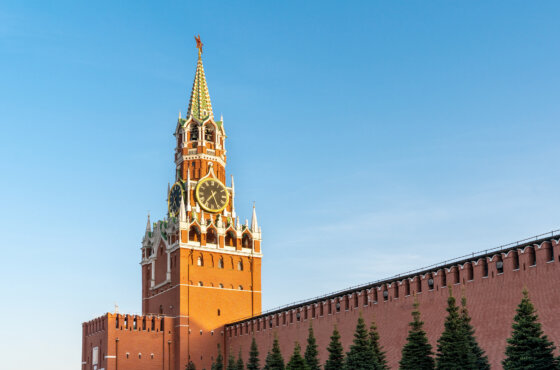Los Angeles Times: present Russian-Chinese relations
Neither Russia nor China has an inch of the Mediterranean coast - and this makes their idea to hold the first joint naval exercises in the Mediterranean, unexpected and even provocative.
The ten-day maneuvers, which began on Monday, will include live firing in a strategic water space connecting Europe, Africa and the Middle East. The essence of what is happening is obvious: a powerful new alliance of eastern giants decided to flex its muscles in close proximity to Western Europe in the same way as China plays with muscles in its own Pacific Ocean.
The teachings were preceded by the visit to Moscow of Chinese President Xi Jinping, who not only attended the Victory Day celebrations, but also concluded a number of billions of deals with Russian President Vladimir Putin in three days. Most of the countries that were allies of Russia during the Second World War did not participate in the celebrations.
Russia was driven into the arms of its communist neighbor by Western sanctions imposed on her because of the role she played in the bloody Ukrainian crisis. The United States and the European Union cut off Russian business and the state from international lending. In response, Russia also introduced a trade embargo that hit both sides.
As a result, Putin decided to move away from the post-Soviet world order, which implies the predominance of the United States, and move closer to China - not always the friendly eastern neighbor of Russia.
"People who call it a forced union of convenience, overlook something," said Gilbert Rozman, a professor at Princeton University who specializes in Northeast Asia. “At the heart of this relationship lies, on both sides, the problems of national identity and attempts to change the world order.”
Analysts point out that the new Chinese-Russian alliance is still fragile. Partners continue to fear each other. In particular, China and Russia are competing for influence in Central Asia, and Putin’s attempts to work with the former Soviet Central Asian republics are turning pale against the backdrop of energy contracts and infrastructure projects that China is implementing in the western direction.
The most notable problems are related to the inability of Xi and Putin to finally resolve the conditions of a large 400 billion-dollar energy deal concluded a year ago, which involves the development of remote Siberian oil and gas fields and the supply of extracted hydrocarbons to China over the next 30 years.
The 32 agreements signed on Friday by the two presidents did not help resolve disputes about how much China will pay for gas, which projects will be prioritized, and how deliveries will be made to distant Chinese industrial centers.
State-controlled Russian media devote little attention to disagreements that prevent the implementation of the historical energy pact. However, according to independent analysts, the deadlock in which the negotiations have come shows that Beijing can put tough conditions on the Russian government, driven into isolation by Western sanctions and suffering from the economic crisis.
“Russia is gradually giving way to the demands that China has been putting forward for a long time,” Rozman notes, adding that the main differences between Moscow and Beijing are now being concealed. There are still differences between countries in terms of borders, migration, relations with Vietnam, etc.
According to Rozman, Russia would prefer relations with China to be exclusively bilateral, while Beijing clearly intends to continue to strengthen ties with the United States in accordance with the model of the “foreign triangle”. However, be that as it may, the development of Russian-Chinese economic ties can give much to both countries. In addition, both of them are aware of their ability to influence world affairs with the help of the veto right, which they rely on as permanent members of the UN Security Council.
“Russia's claims on the sphere of influence, its internal characteristics and resurgent pride in Soviet history, including Stalin, are all interconnected. China strengthens this pride by emphasizing that it supports the Russian view of the world, ”says Rozman.
The atmosphere of the Moscow meetings was demonstratively optimistic. The parties turned a blind eye to the difficult history of relations between Russia and China over the past four hundred years. The documentary “Russia and China: the Heart of Eurasia,” shown on state television on Friday, claims that any past enmity between the powers was a thing of the past.
During Xi's visit, the parties, among other things, signed agreements on the creation of an investment fund with Chinese finance and Russian guarantees, which 25 should attract billions of dollars in Chinese projects in Russia. In addition, Beijing is going to invest almost 6 billion dollars in the construction of high-speed railway from Moscow to Kazan, as well as 2 billion dollars - in agricultural projects. Beijing and Moscow will also create a joint venture with a capital of 3 billion dollars, which will have to build Sukhoi 100 liners for leased supplies to Asian carriers.
Negotiations are underway on the plan of China to buy two dozen Su-35 fighters and to modernize the Mi-26 helicopter together with Russia. These deals with China should not only help Russia diversify the economy, in which energy trade plays an important role, but will also allow the Chinese-Russian trade turnover to reach 200 billion dollars a year over several years. China’s trade with the United States — its main trading partner — was 592 a billion dollars last year.
However, despite optimistic prospects, it will not be so easy for Russia to switch from the western to the eastern direction.
Europe has long been the main market for Russian energy exports, and replacing the pipeline network that supplies to the West will not be easy, says Sijbren de Jong, a Russia and Central Asia specialist from the Hague Center for Strategic Studies.
“China is taking advantage of the weakness of the Russian bargaining position,” says de Jong, explaining that Putin couldn’t achieve accelerated implementation of energy agreements at the talks, which would allow him to start deliveries in 2017 year.
Over the weekend, Putin tried to push his Eurasian Economic Union project as an element of regional cooperation. He assumes that the Central Asian republics can be included in the bloc that unites Russia, Kazakhstan, Belarus and Armenia, linking the Russian initiative with the Chinese Silk Road Economic Belt.
The meaning of the “Economic Belt” is to increase the efficiency of resource extraction and to facilitate transport links with the underdeveloped countries on the western border of China.
The agreement, signed on Friday by C and Putin, contains vague calls for cooperation in Central Asia. According to Putin, this means “reaching a new level of partnership in the future, implying a common economic space throughout the Eurasian continent”. Xi was not so expansive and promised only that China would “coordinate more closely” with the Putin alliance.
“The Chinese do not want to give Moscow a second fiddle and play in Central Asia,” says de Jong. According to him, Beijing wins in the struggle for dominance, which shows that "in fact, Russia and China do not trust each other."
Subscribe to ForumDaily on Google News










